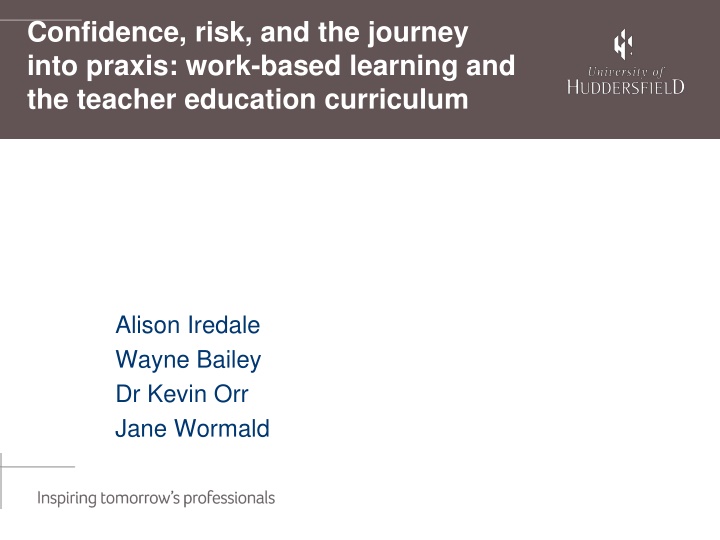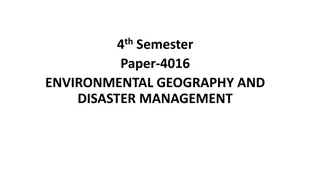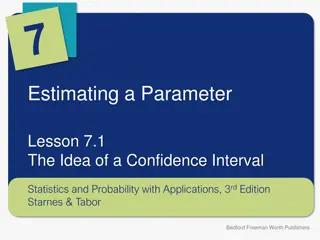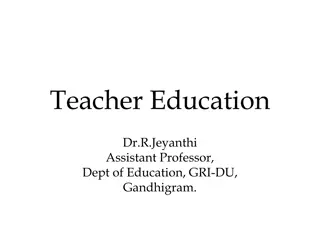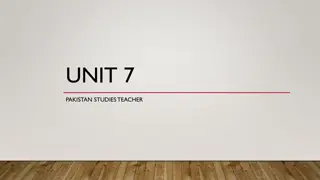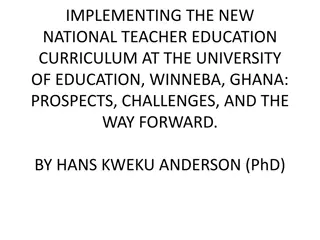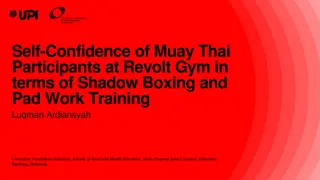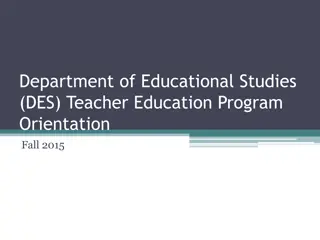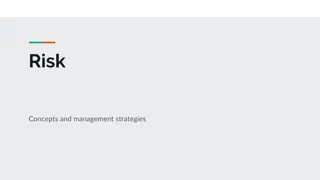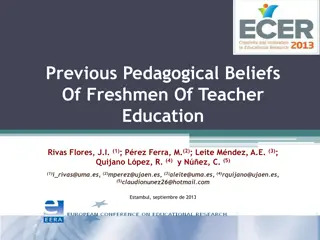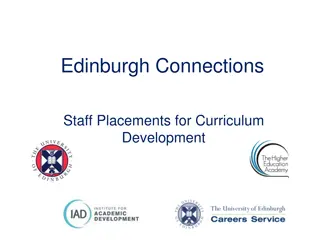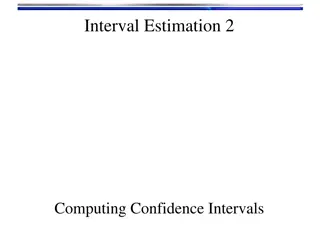Confidence, Risk, and Professional Knowledge in Teacher Education Curriculum
Work-based learning plays a crucial role in developing confidence and managing risks in teacher education. The journey into praxis involves accommodating risk, inculcating confidence, and navigating dominant discourses. This study explores the interplay between theory and practice, emphasizing the importance of eukairia and the complexities of teacher training.
Download Presentation

Please find below an Image/Link to download the presentation.
The content on the website is provided AS IS for your information and personal use only. It may not be sold, licensed, or shared on other websites without obtaining consent from the author.If you encounter any issues during the download, it is possible that the publisher has removed the file from their server.
You are allowed to download the files provided on this website for personal or commercial use, subject to the condition that they are used lawfully. All files are the property of their respective owners.
The content on the website is provided AS IS for your information and personal use only. It may not be sold, licensed, or shared on other websites without obtaining consent from the author.
E N D
Presentation Transcript
Confidence, risk, and the journey into praxis: work-based learning and the teacher education curriculum Alison Iredale Wayne Bailey Dr Kevin Orr Jane Wormald
Overview Professional knowledge and practice Accommodation of risk Eukairia Policy discourses The inculcation of confidence
Professional knowledge and practice Initial teacher training in the lifelong learning sector Pedagogic content knowledge Legitimate professional knowledge Praxis and phronesis Technical expertise
Dominant discourses and confidence Use of confidence in regularity documents Standards as qualifications Power relations and surveillance
Confidence and the accommodation of risk What is missing from such discourses is the acknowledgement of unpredictability and non- calculability (true risk, that is) as an inherent, disruptive and creative force of teaching and learning, as many educational philosophers have convincingly pointed out (Papastephanou 2006: p50)
Inculcating confidence in trainee teachers. Are trainee teachers different from other learners? Self-belief reassurance Feeling secure Positive feedback Being treated well Support, encouragement and
Eukairia the journey into praxis Beyond a narrow treatment of the pressures of production, performance, problem-solving and decision-making as well as beyond the space of distant study viewed as protected and sanitized, there always lies eukairia (good, appropriate time) for the learning that corresponds to the desire for various ways of knowing and to a reconciled theory and practice . (Papastephanou 2006:p50)
Tensions and imperatives To Formal education as dialogue, as time and space Initial teacher training as pause for thought Confidence through risk- taking Praxis inculcated through Eukairia From: Dominant policy and regulatory discourses Professional knowledge and practice as experiential, reflective, distinct and separate Higher education as elitist/conceptual/distant from practice
References Illeris, K. (2011) The fundamentals of workplace learning, Oxon, Routledge Iredale, A. (forthcoming) Down the rabbit-hole: Routinised Practices, Dewey and Teacher Training in the Lifelong Learning Sector. Journal of Higher Education, Skills and Work Based Learning Papastephanou, Marianna (2006). Education, risk and ethics. Ethics and Education 1 (1):47-63 Papastephanou, Marianna (forthcoming). Aristotelian Gnoseology and Work- Based Learning. Journal of Higher Education, Skills and Work Based Learning Sch n, D (2001) The Crisis of Professional Knowledge and the Pursuit of an Epistemology of Practice in Raven, J. and Stephenson, J. (2001) Eds. Competence in the Learning Society, New York, Peter Lang Wain, K. (2006-03-01). Contingency, Education, and the Need for Reassurance. Studies in philosophy and education, 25(1), 37-45.doi:10.1007/s11217-006- 0001-4
